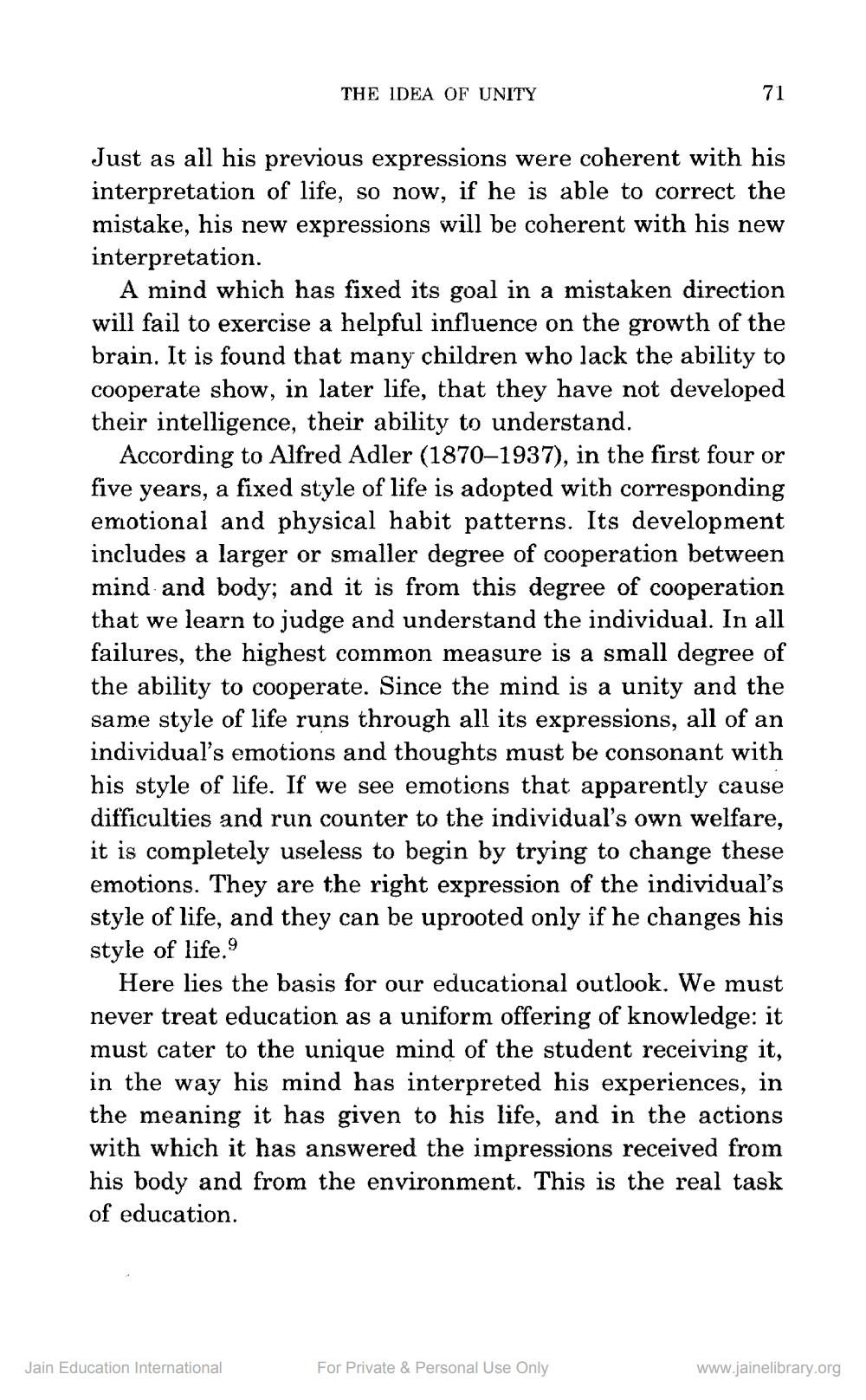________________
THE IDEA OF UNITY
Just as all his previous expressions were coherent with his interpretation of life, so now, if he is able to correct the mistake, his new expressions will be coherent with his new interpretation.
A mind which has fixed its goal in a mistaken direction will fail to exercise a helpful influence on the growth of the brain. It is found that many children who lack the ability to cooperate show, in later life, that they have not developed their intelligence, their ability to understand.
According to Alfred Adler (1870–1937), in the first four or five years, a fixed style of life is adopted with corresponding emotional and physical habit patterns. Its development includes a larger or smaller degree of cooperation between mind and body; and it is from this degree of cooperation that we learn to judge and understand the individual. In all failures, the highest common measure is a small degree of the ability to cooperate. Since the mind is a unity and the same style of life runs through all its expressions, all of an individual's emotions and thoughts must be consonant with his style of life. If we see emotions that apparently cause difficulties and run counter to the individual's own welfare, it is completely useless to begin by trying to change these emotions. They are the right expression of the individual's style of life, and they can be uprooted only if he changes his style of life.9
Here lies the basis for our educational outlook. We must never treat education as a uniform offering of knowledge: it must cater to the unique mind of the student receiving it, in the way his mind has interpreted his experiences, in the meaning it has given to his life, and in the actions with which it has answered the impressions received from his body and from the environment. This is the real task of education.
Jain Education International
For Private & Personal Use Only
www.jainelibrary.org




